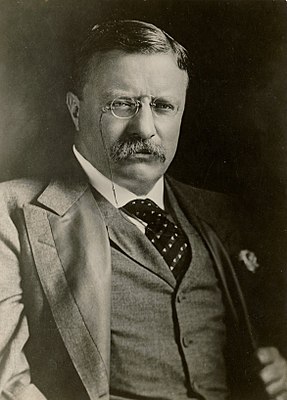
--Theodore Roosevelt

Patent quality has been severely compromised by the EPO -- to the point of being totally detached from the EPC and several other things. The Battistelli-appointed (de facto) António Campinos actively promotes software patents in Europe (using some buzzwords) and there's now this pilot (CQI) to further lower patent quality while the EPO publicly lies about its concerns on the matter.
"We know whose side the law is on, but the EPO quit obeying the law several years ago."The EPO cannot eternally rely on terrorising its judges and then covering it up. Sooner or later more and more European Patents will come under scrutiny outside EPOnia (or Haar, which is obviously outside EPOnia and thus unsuitable a venue, according to the EPC). What happens then? Can the EPO continue until eternity (or its end of life) to disregard judges' precedents (except internal judgments which are constitutionally invalid) and carry on granting fake patents? Applications will decrease in number as soon as applicants spot these trends. This is already happening.
Earlier on this week, or yesterday, Bart van Wezenbeek wrote about a District Court of The Hague case (this case's date is exactly one month ago, June 19th) in which dubious patents were assessed in European courts. To quote:
In the present case, it appeared from the prosecution file that the limitation had been introduced with a purpose, and the patentee had accepted the limiting examiner’s amendments. Taken together with the fact that the patentee could be considered a professional party with sufficient knowledge in the field of patents, this means that the scope of the claim was determined more by the literal interpretation of the claim than by the concept of the invention behind it.
NEW YORK – The European Patent Office this week revoked another patent held by Pacific Biosciences, according to Oxford Nanopore, the firm's main competitor.
No-body serious considers the EQEs to be a gold-standard of practice. Since they are time-limited exams they will necessarily not award points in Paper C for novelty/inventive step arguments against claims that are already dealt with as added matter, but this is not real life.
In real life, added matter is included as an objection in probably the majority of oppositions, but the sensible attorney will also make arguments on novelty/inventive step and other grounds if these are viable. In real life only deciding that there is added matter, and not even considering novelty/inventive step in case your decision on added matter is incorrect, will simply waste time in the long run in the majority of cases.
One of the criticisms regularly levelled at both the PEB exams and the EQEs is that they ignore commercial realities. Typcially this is because they require you to do things that the client doesn't normally want. P6/FD4 is criticised for requiring integer-by-integer claim construction analysis that no sane client wants you to do, whilst Paper B requires you to cover-off points that no-one writing a response in real life would think worth the cost of responding to.
However, here we have an example of the exams requiring that you do not do something that the client actually typically wants - to make novelty/inventive step argument just in case your cleverly-drafted added matter arguments fail. Attorneys know that commercial reality demands this - it is only good when courts also realise this in making their decisions.